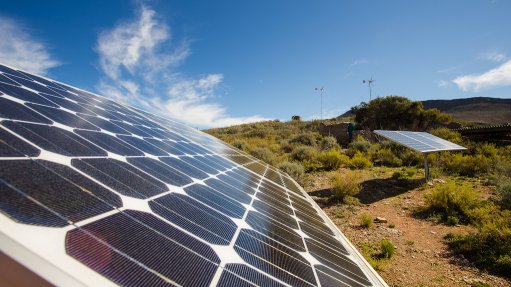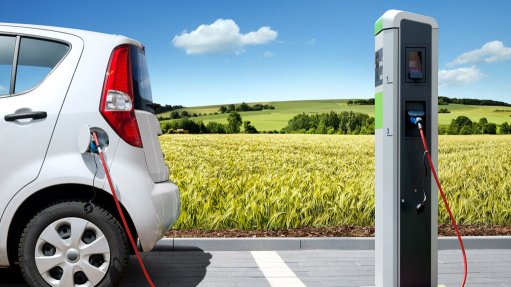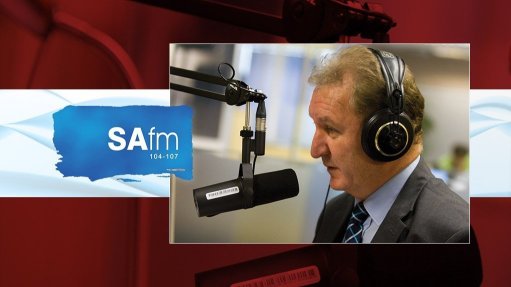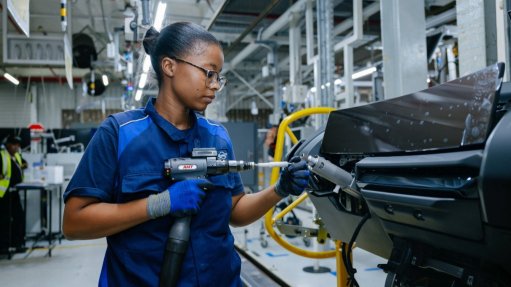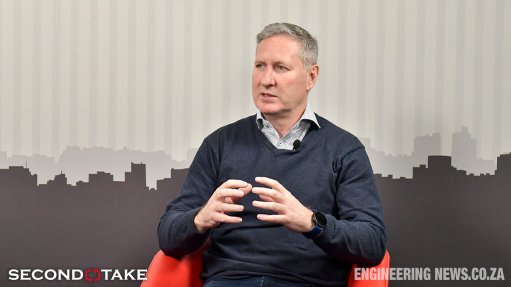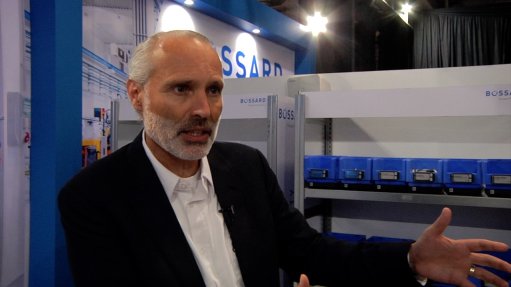Hibarri CEO Anje Kruger raises alarm over looming tax hike
This article has been supplied.
CEO Anje Kruger says tax hikes will drive business owners out of South Africa! Increasing resident tax in a country to restore a deficit is one of the dumbest things anyone can do.
The International Commodity Summit (ICS2025), hosted by Hibarri, South Africa's top online commodity trading platform, expected to bring together thousands of global executives from all industries. However, concerns are growing about a prospective tax increase that would put more burden on the nation's economy, which was already in deficit at the start of the fiscal year.
The summit, a platform for discussing the future of commodity trading in South Africa, comes at a crucial time when the country is facing a treasury deficit of over R300 billion. With taxpayers already stretched to their limits, the prospect of increasing taxes is alarming.
In recent months, South Africa has faced economic and geopolitical challenges, including the suspension of foreign aid by the United States over allegations of racial discrimination. These developments have raised questions about the country’s commitment to equality and inclusivity, especially considering impending tax increases that could disproportionately affect economically disadvantaged citizens.
"Tax hikes will drive business owners out of South Africa," warned Hibarri CEO, Anje Kruger. "Increasing taxes to restore a deficit is one of the dumbest things anyone can do. We need to focus on spending less and earning more by promoting our rich resources and minerals. If we don't create better tax incentives, we risk becoming an impoverished nation."
The South African government has surplus expense, including additional bailouts for state-owned enterprises and an extension of the Social Relief of Distress (SRD) grant. Economists predict that common tax increases may occur, including hikes on sin taxes for alcohol and tobacco, as well as adjustments to the fuel levy. The last Value Added Tax (VAT) increase in South Africa was in 2018, raising it to 15%. Observers are concerned that freezing tax brackets will erode salary increases, further burdening taxpayers.
Kruger emphasized that punitive tax measures on production and entrepreneurship are counterproductive. "Countries that thrive economically often have favourable tax incentives that attract investment and talent. South Africa should learn from these models and promote growth rather than penalize it.”
Instead of raising taxes and deterring investors, South Africa should prioritize strategic reductions in government expenditure and optimize its fiscal policies. The primary focus should be on decreasing government spending, as research shows this can effectively reduce deficits. Specifically, cutting current expenditures, which have minimal impact on economic growth, is preferable to reducing capital expenditures, which could negatively affect growth.
South Africa needs to reconsider its fiscal policy adjustments. By eliminating tax expenditures, which are government spending through tax code provisions, the country can lower deficits without increasing tax rates. This involves removing subsidies and special tax breaks that diminish tax revenue.
The Treasury should also reconsider its approach to expenditure management and balanced revenue creation. This is a crucial step that can take place while concurrently managing income and spending. Such a strategy assures that revenue gains do not result in proportional spending increases, which would jeopardise deficit reduction efforts.
The South African state requires structural reform to enhance the efficiency of government operations and reduce waste, contributing to deficit reduction without necessitating tax increases. Another potential strategy is fiscal synchronization, which aligns tax policies with government spending to manage deficits more effectively. This involves a coordinated fiscal policy approach that balances both sides of the budget.
Hibarri is a testament of what South Africa can produce through innovative and economic creativity, South Africa has similar mergers and start-ups that reflect this authenticity.
The discussions at the summit will shape the future of commodity trading and potentially influence the country’s economic policies moving forward.
Keynote discussions will focus on the two main themes needed for economic transformation in South Africa – which is the intergovernmental debate, and the capital markets in commodities debate.
- Liquidity management is crucial for businesses, and the optimal balance of leveraged finance, private equity, and direct ownership is essential.
- The capital markets discussion covers futures, options, swaps, global trends, and geopolitical factors.
- It also explores the optimal liquidity/leverage/equity balance, securitization vs unsecured loans, effective capital raising strategies, and key lessons for entrepreneurs and CFOs entering the capital markets arena.
In South Africa, financial distress frequently escalates into a crisis before stakeholders intervene. The Deloitte Restructuring study 2024 (restructuring study) finds that organisations usually postpone addressing distress until late-stage triggers, such as covenant violations or missed payments, occur.
By that point, the window of opportunity for recovery has shrunk dramatically, with far-reaching social and economic consequences.
South Africa, and neighbouring African nations will also immensely benefit from the intergovernmental summit that will combat global challenges by addressing:
- sustainable agricultural needs, reducing unemployment, targeting geopolitical instability, addressing ineffective monetary policies,
- reforming tax systems, and strategically leveraging foreign direct investment to build resilient infrastructure and combat global hunger,
- while also addressing climate change risks and preventing soaring food prices.
Comments
Press Office
Announcements
What's On
Subscribe to improve your user experience...
Option 1 (equivalent of R125 a month):
Receive a weekly copy of Creamer Media's Engineering News & Mining Weekly magazine
(print copy for those in South Africa and e-magazine for those outside of South Africa)
Receive daily email newsletters
Access to full search results
Access archive of magazine back copies
Access to Projects in Progress
Access to ONE Research Report of your choice in PDF format
Option 2 (equivalent of R375 a month):
All benefits from Option 1
PLUS
Access to Creamer Media's Research Channel Africa for ALL Research Reports, in PDF format, on various industrial and mining sectors
including Electricity; Water; Energy Transition; Hydrogen; Roads, Rail and Ports; Coal; Gold; Platinum; Battery Metals; etc.
Already a subscriber?
Forgotten your password?
Receive weekly copy of Creamer Media's Engineering News & Mining Weekly magazine (print copy for those in South Africa and e-magazine for those outside of South Africa)
➕
Recieve daily email newsletters
➕
Access to full search results
➕
Access archive of magazine back copies
➕
Access to Projects in Progress
➕
Access to ONE Research Report of your choice in PDF format
RESEARCH CHANNEL AFRICA
R4500 (equivalent of R375 a month)
SUBSCRIBEAll benefits from Option 1
➕
Access to Creamer Media's Research Channel Africa for ALL Research Reports on various industrial and mining sectors, in PDF format, including on:
Electricity
➕
Water
➕
Energy Transition
➕
Hydrogen
➕
Roads, Rail and Ports
➕
Coal
➕
Gold
➕
Platinum
➕
Battery Metals
➕
etc.
Receive all benefits from Option 1 or Option 2 delivered to numerous people at your company
➕
Multiple User names and Passwords for simultaneous log-ins
➕
Intranet integration access to all in your organisation






